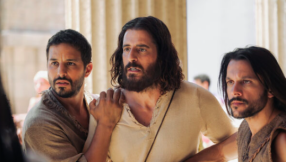
On 1 March, a Filipino church leader will assume his post as the next Secretary General of the World Evangelical Alliance, a global body representing some 600 million evangelicals worldwide.
Bishop Efraim Tendero may not be a household name, but among those who know him he has gained a reputation as a man of quiet dignity who is not afraid to take a strong stand for the issues he cares about.
It is significant that the WEA's next Secretary General hails from the Global South, where the Christian faith continues to flourish and spread, unlike in the Western countries where the majority of his predecessors have hailed from.
There was positive affirmation following the announcement of his appointment. The Wycliffe Global Alliance, for example, which works on Bible translation for largely Global South people groups, praised Bishop Tendero in a statement as someone who is "well-respected globally and is recognised in the Philippines as a man of great humility, a statesman and promoter of the unity of the Body of Christ."
Bishop Tendero currently heads the Philippine Council of Evangelical Churches and in recent weeks has been particularly vocal about a dispute few will have heard of outside of the Philippines. It concerns a bloody clash between members of the Special Action Force of the Philippine National Police, and members of the Moro Islamic Liberation Front in Mamasapano town, Maguindanao, located in the Autonomous Region in Muslim Mindanao.
The deadly exchange of fire on January 25 killed 44 policemen and 18 insurgents, as well as several civilians. Some 1,500 families were displaced.
The rebels have spent years fighting for more autonomy for the Moro people but last year they agreed a peace deal and ceasefire with the government, now compromised by the recent clash. An investigation into the incident is underway and, amid conflicting accounts, Bishop Efraim this week joined Catholic leaders in calling for the establishment of a Truth Commission to get to the bottom of what happened.
"We mourn for the tragic loss of lives that could have been avoided, and ... we call for justice and full accountability," he told reporters.
Bishop Tendero has been active in fostering peace in the Philippines for years. Back in 2011, he was instrumental in organising the first ever Evangelical Peace Summit to foster collaboration among Christians in ending the conflicts that continue to blight some regions. The outcome of the summit was the creation of a new Peace and Reconciliation Commission.
Peace is clearly very close to the bishop's heart as he also serves on several inter-faith dialogues, including the United Nations High-Level Inter-religious and Intercultural Dialogue for Understanding and Peace.
But Bishop Efraim will undoubtedly have other contributions to make to the WEA come March 1. As the executive editor of Evangelicals Today, the longest-running Christian magazine in the Philippines, Bishop Efraim will come with an understanding of the power of the media and how to communicate complex and unfamiliar ideas in simple terms. He will also undoubtedly possess a keen eye for the hot button issues that deserve his attention. His predecessor, Dr Geoff Tunnicliffe, possessed similar acumen and the WEA benefited greatly from this, with its media profile and engagement increasing drastically during his decade-long tenure as Secretary General. It would be a shame to lose this hard-won ground.
There is also something to be said about Bishop Efraim's experience of ministry in a majority-Catholic country as the WEA continues in dialogue with the Catholic Church. Just last November, Dr Tunnicliffe led a delegation of the WEA in a meeting with Pope Francis and representatives of the Pontifical Council for Promoting Christian Unity at the Vatican.
During the meeting, the two sides talked about the areas of common concern that hold promise for closer collaboration, among them human trafficking and religious persecution. Dr Tunnicliffe suggested continued discussions around theological commonalities and differences, and went as far as to say it was a "new era in evangelical/Roman Catholic relations". It now falls to his successor to see these efforts through.
At a time when evangelicals are still greatly misunderstood and are trying to speak with one voice, an able communicator who has grown up in the non-Western church and who knows how to effectively engage on his own national stage will be a real asset to the WEA.













